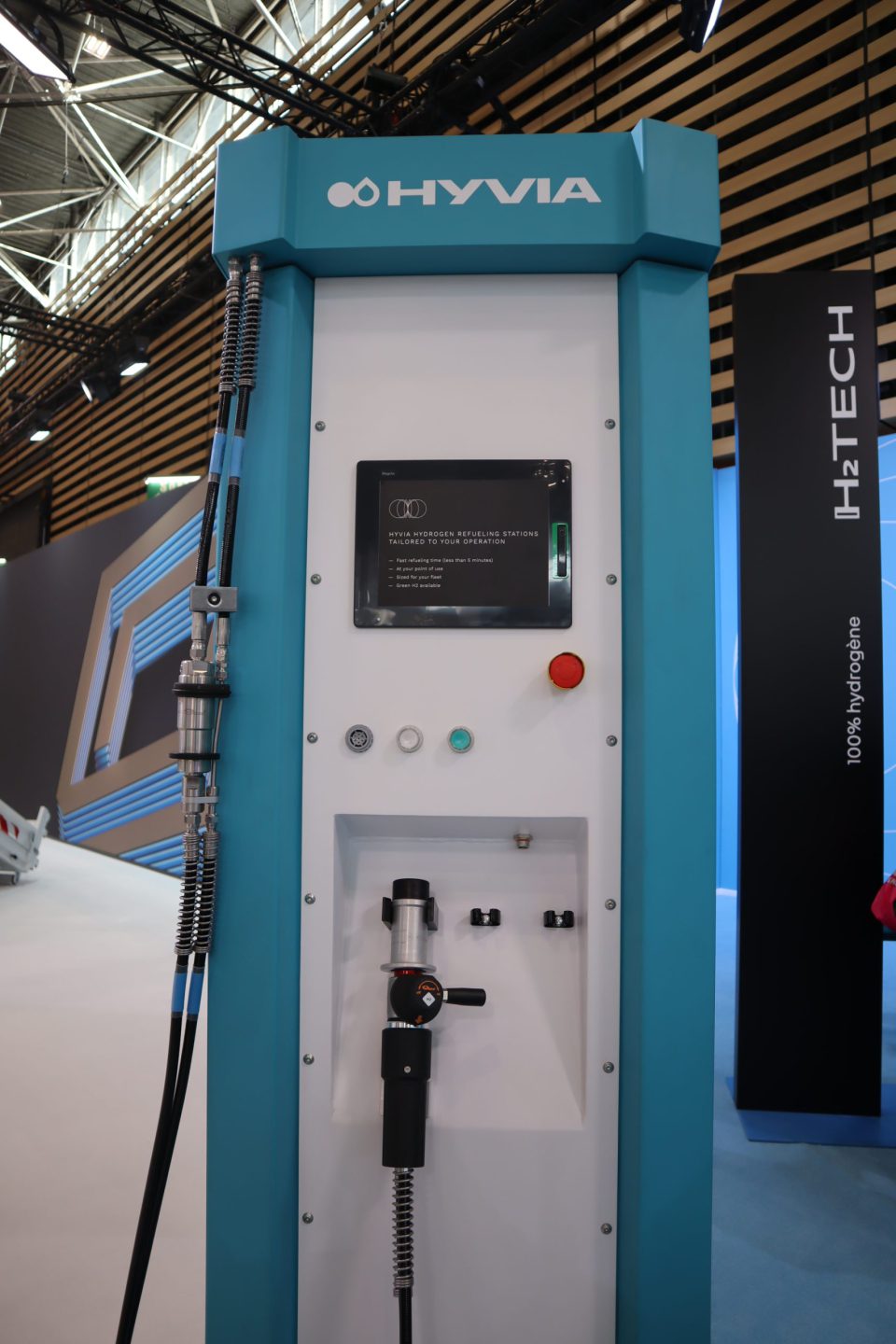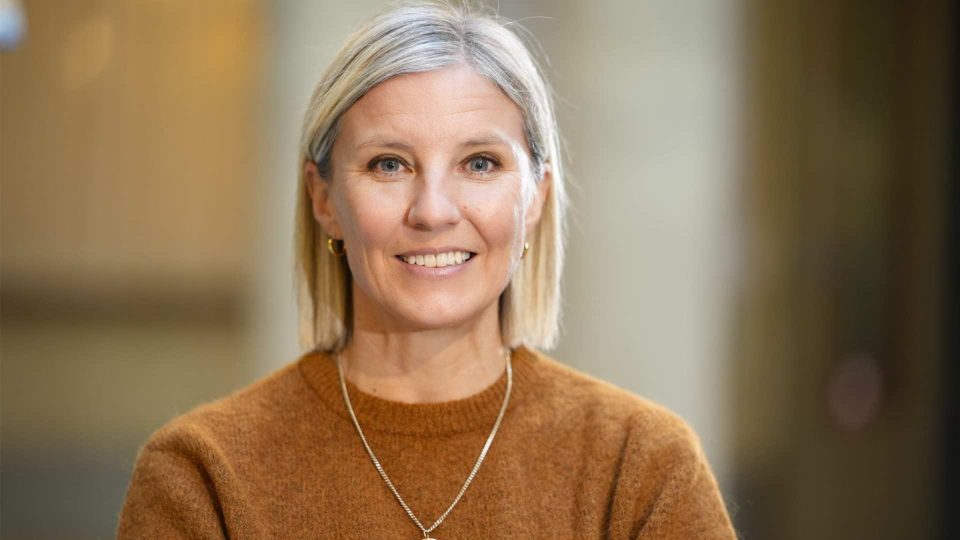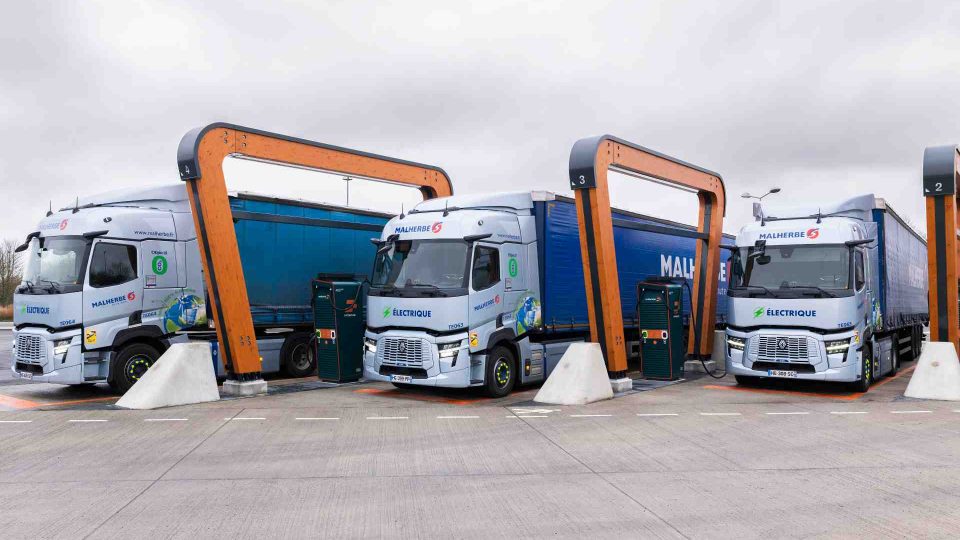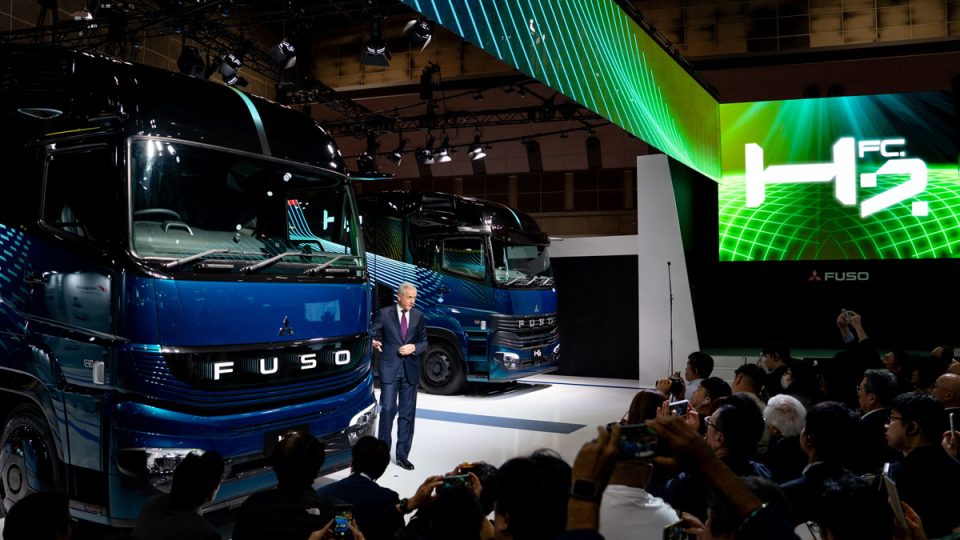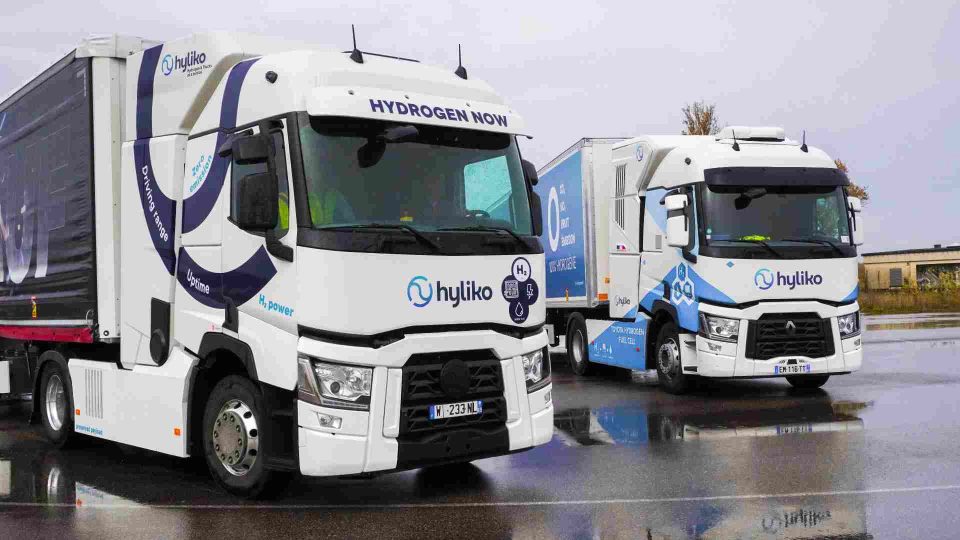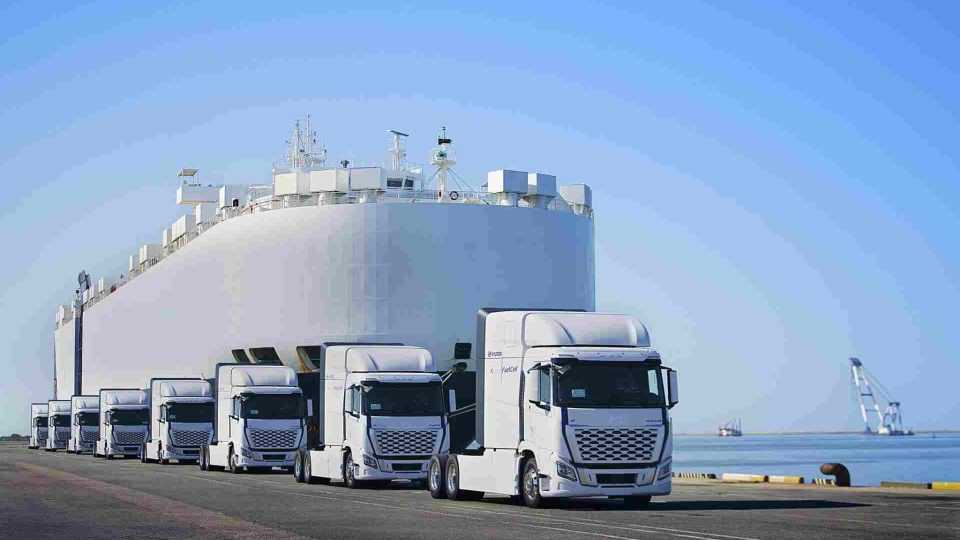The peculiarities of a far-sighted partnership. CEO David Holderbach explains the HYVIA project
«The principle of the vehicles is quite simple. We start from an electric vehicle, with an electric motor and a battery. Then, we add a fuel cell and tanks for hydrogen storage. Taking the example of the van, we put four tanks, then bringing the range to 500 km, quite important for customers who need to use the vehicle in an intensive way», said CEO Holderbach.
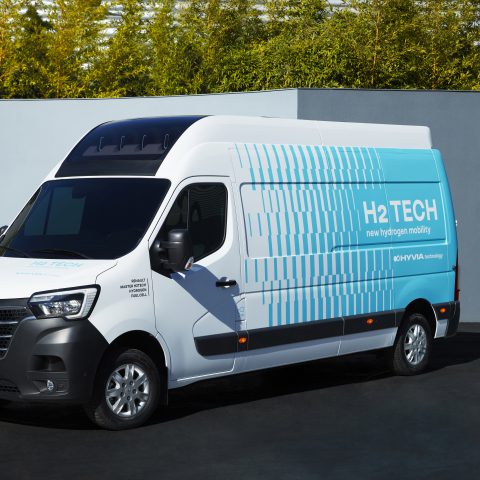
«HYVIA is a brand-new company, but we’re truly proud of what we’ve done so far». David Holderbach is CEO of HYVIA, a 50-50 partnership between Renault Group and Plug Power with an extremely concrete focus, which is the development of hydrogen solutions for the future of mobility. In only a few months, under the HYVIA umbrella, three prototypes have been released: the Chassis Cabin (on display at Solutrans), a City Bus introduced in Paris at the end of October and the hydrogen-fueled Master Van, introduced only a few weeks ago. The van will be available in 2022 and will rely on a 30 kW fuel cell, a 33 kWh battery and tanks containing 6 kg of hydrogen (4 tanks of 1.5 kg).
At Solutrans, we met CEO Holderbach, who told us more about such a young and disruptive project, also confirming that series production will start in 2022.
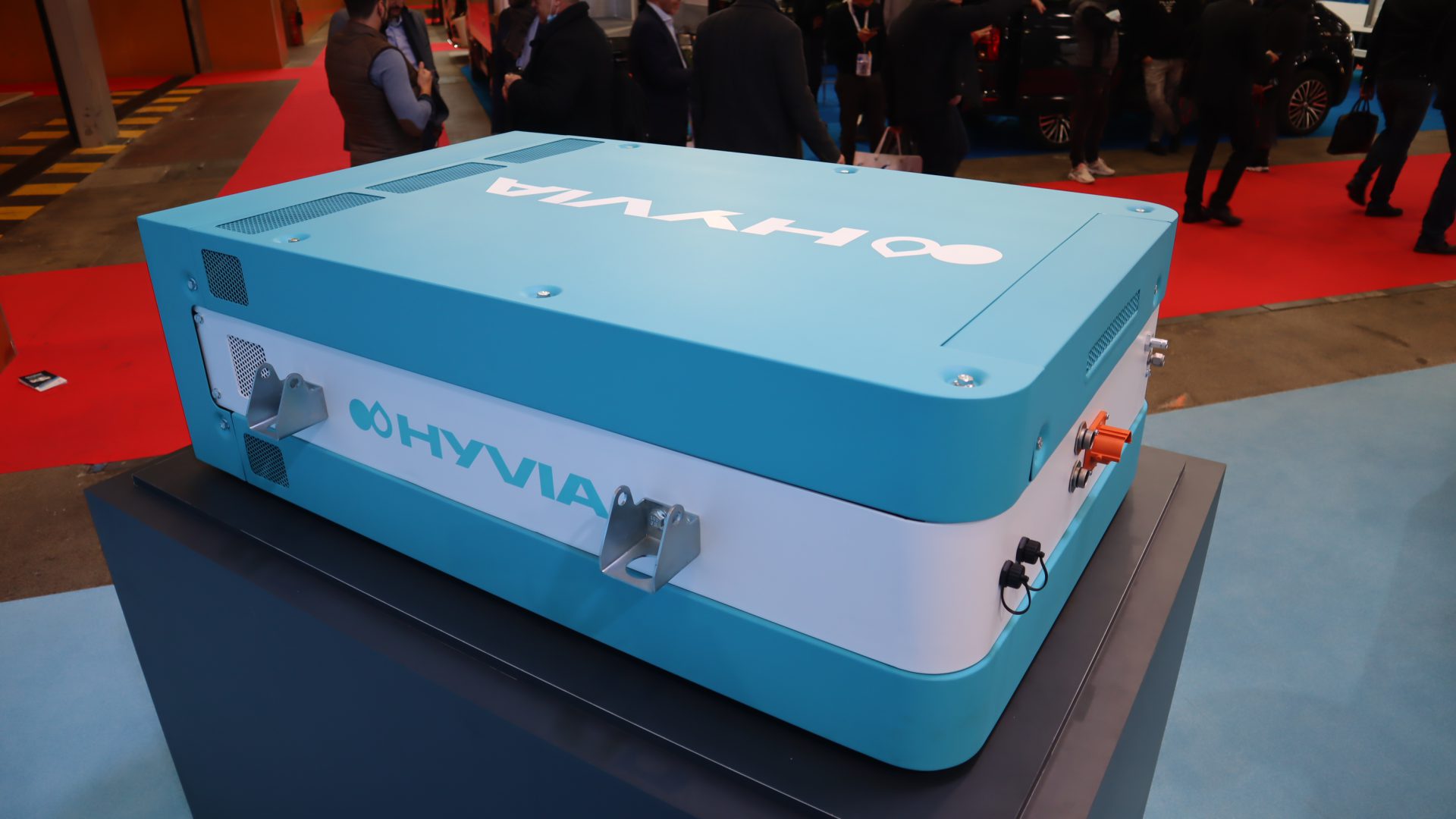
HYVIA CEO David Holderbach on the project
HYVIA is a 50-50 partnership. What does it mean?
«We’re both Renault and Plug Power. Renault brings us the vehicle, the Master, and its network of professionals and services. Renault has a strong expertise in LCVs and is leader of Electric LCVs in Europe. At the same time, Plug Power brings us the valuable expertise in hydrogen technology. Plug Power is the leader in the US for hydrogen. They’re the biggest hydrogen consumers today, they’ve got 50,000 fuel cells and 600 million hours in operation, so they’re not a start up at all. Moreover, they’re expanding their gigafactory very fast».
What’s the principle of the next-generation vehicles you design?
«The principle of the vehicles is quite simple. We start from an electric vehicle, with an electric motor and a battery. Then, we add a fuel cell and tanks for hydrogen storage. Taking the example of the van, we put four tanks, then bringing the range to 500 km, quite important for customers who need to use the vehicle in an intensive way. Another advantage of fuel cells is that we can use smaller batteries, which minimizes the environmental impact of batteries.
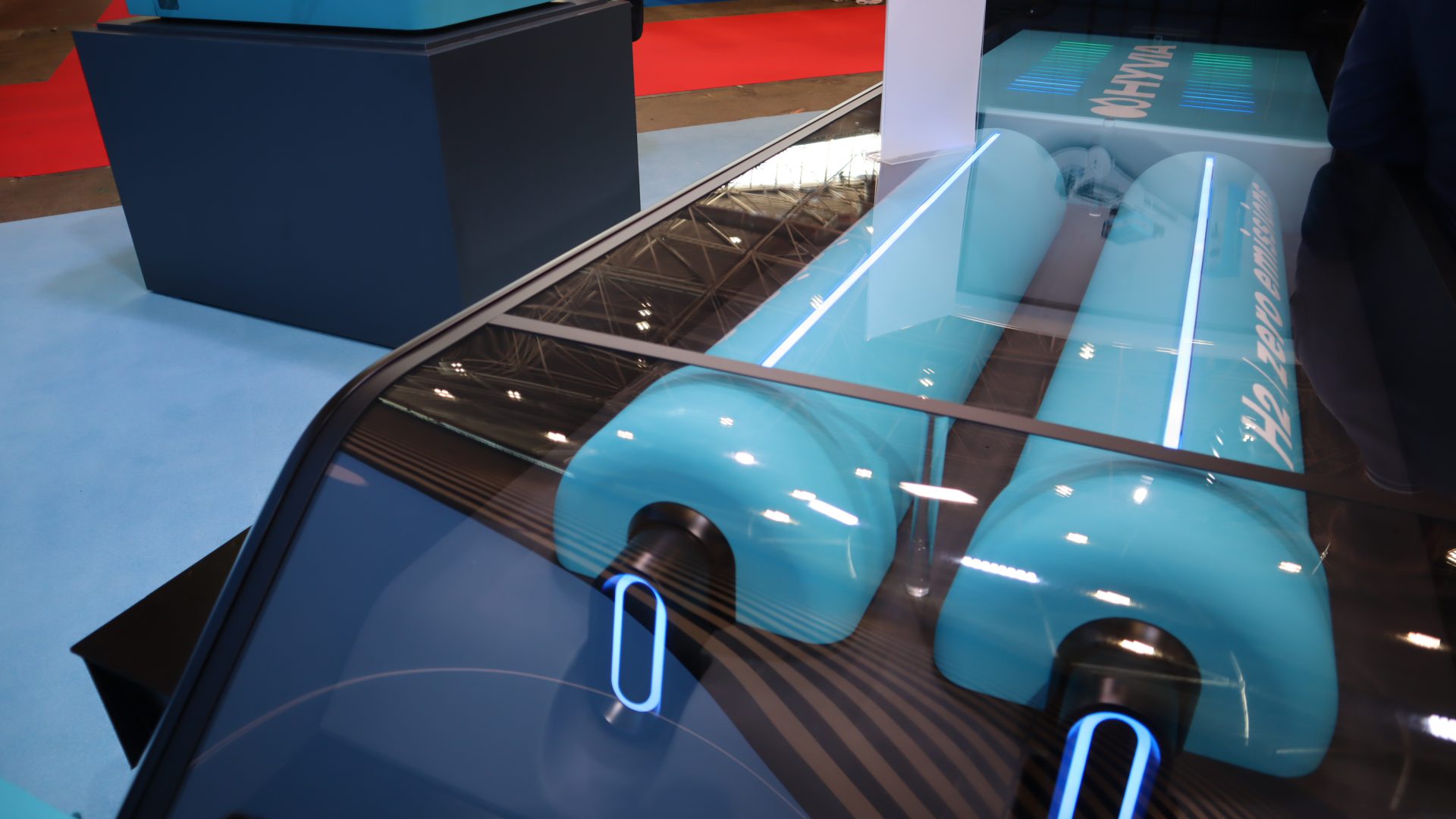
Moreover, hydrogen can be refueled in a few minutes. The principle of having a battery and fuel cell is that fuel cells can be used to recharge the batteries when conditions are stable. This is very important because when we do that the efficiency of the fuel cell is maximized, as well as the durability of the batteries. Also, when you need a lot of power you can use both the batteries and the fuel cell. Besides, the fuel cell can be used to power the fridge on the back of the vehicle, for instance».
From electrolyzers up to the vehicles
What’s the peculiarity of the HYVIA project, then?
«Thanks to the collaboration with Plug Power, we can supply also the infrastructure, then the charging station, in addition to the whole green hydrogen cycle, including electrolyzers. We have two types of potential customers. The fleets, which are forced to change due to regulations and so on, and the urban or local institutions, which are looking for hydrogen infrastructure. There will be time for testing, but the regulations are coming and they need to be prepared. We will also sell HYVIA-branded fuel cells in the European market».
So, can we say that the HYVIA business goes from electrolyzers up to the vehicles?
«Absolutely. Speaking of fuel cells, Renault has a project of reorganizing a huge production site in Flins, France, in view of circular economy concepts. There, we have a workshop and we’re currently training the operators, also thanks to the collaboration with Plug Power, in order to make them able to assemble fuel cells. HYVIA fuel cells will be indeed manufactured in France. Also, soon we’ll be able to manufacture charging stations in Flins and there’s a project aimed at manufacturing electrolyzers in the future».
